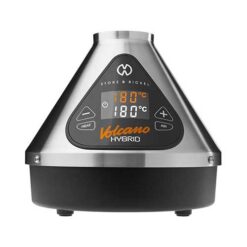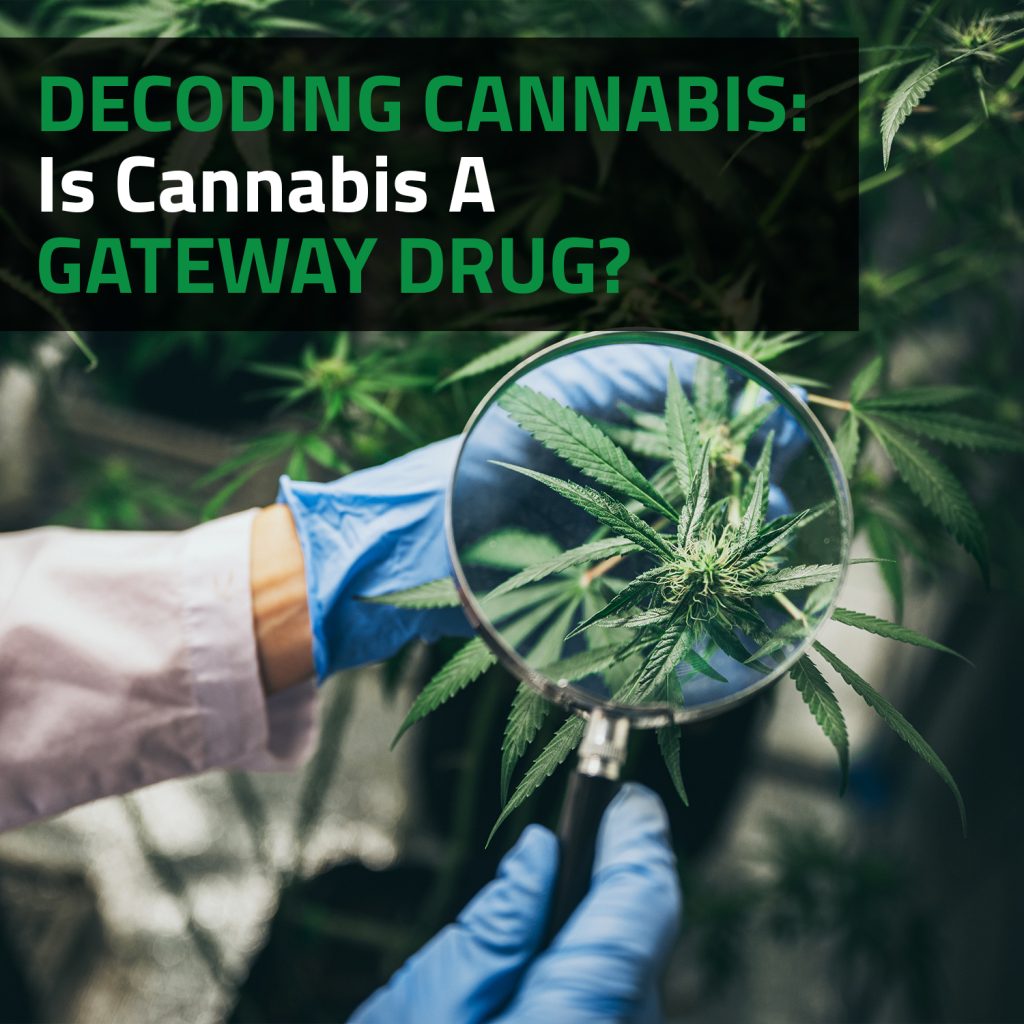Cannabis has been subject to many stereotypes, and unfortunately, many of these are negative. One of these stereotypes is that cannabis is a gateway drug – a substance that will lead to the use of other more harmful drugs.
With all the news about cannabis and its benefits being spread through first hand accounts and various other sources, many people are still uncertain about this aspect of the plant. So is using cannabis a cause for concern regarding the fact that it is a gateway drug, or is it safe to consume cannabis without worrying about craving something stronger? Keep reading to find out.
Viewing Cannabis As A Gateway Drug
The rumour of cannabis being a gateway drug started around the 1970s, and was greatly influenced by the messaging of the War on Drugs campaign. Their tactic was to stop drug use in the United States, but they ultimately target people of colour for mass incarceration.
The gateway drug “theory” suggests that cannabis and alcohol are considered to be “soft” drugs that are easy to get, especially for teenagers. Doing these substances will then supposedly lead to doing hard drugs, like heroin and cocaine, and addiction.
There are several potential arguments used to support the theory that cannabis is a gateway drug:
- Cannabis can alter your brain chemistry: This theory states that cannabis has the potential to change how the brain responds to other substances/drugs. It may also be able to increase a person’s desire for drugs.
- Cannabis can influence your addiction threshold: In this view of the gateway theory, cannabis might have the ability to influence the amount of drugs you need to take before you develop a substance use disorder. In short, cannabis might make it easier for you to develop a substance addiction.
What Do Studies Say?
According to data from years of studies at The University of Minnesota and The University of Colorado, we have much more information on the nature of cannabis and whether or not it should be labelled as a gateway drug.
The study was conducted on a group of more than 4 000 twins, 40% of which lived in Colorado where recreational cannabis is legal, and 60% living in Minnesota where cannabis is illegal. Since the study involved twins, it ensured validity as it could account for a wide range of variables, such as social background, age, early home life, and genetic inheritance.
Test subjects were studied and analysed thoroughly at different points: when Colorado opened their first cannabis dispensaries around 2013, and years after. The analysis measured the participants’ tobacco, alcohol, cannabis, and other illicit substance usage. The participants also went through a mental health assessment.
The conclusion? Cannabis use in adults does not show any indication of increasing the risk of developing substance abuse disorders. Specifically, the legalisation of cannabis does not increase this risk. The study also concluded that there is no connection between the legalisation of cannabis and psychological, cognitive, social, financial, or emotional problems of individuals.
Cannabis Legalisation And The Use Of Opioids
After cannabis had been legalised in numerous states in the US, statistics showed a reduction in opioid misuse and overdose rates. Although there has not been any way to prove this, many have suggested that it meant people were turning to cannabis to control their pain rather than opioids.
The Role Of Prohibition
One of the biggest reasons why cannabis has the potential to be a gateway drug is its prohibition. Since cannabis was (and still is in many places) considered an illegal substance, users had to turn towards the illegal market. However, black market dealers often sell much more than just cannabis and want to make as much money as possible, so some users have ended up getting addicted to illicit substances. If cannabis is legalised, this problem can be removed from the equation.
Environmental Factors
While individuals who are part of environments where drug use is routine and where drugs are readily available also likely have cannabis in their rotation, this does not imply causation. It has however established a negative link between cannabis use and its association with the use of other drugs. In practice, an individual that uses cannabis will not develop cravings for other substances or feel the need to move on to something stronger.
Cannabis Vs. Other Substances
When compared to alcohol, cannabis is considered a much safer substance. Many drug experts agree that society would be better off if cannabis were the more accepted recreational intoxicant that was more widely used instead of alcohol.
Health risks are simply one of the many ways to measure the safety of cannabis compared to alcohol. While there has never been a report of cannabis overdosing, alcohol kills over 29 000 people every single year due to liver disease and other types of poisoning. Alcohol has also proven to be a factor in at least 40% of violent crimes in the United States, while studies have found that cannabis does not make users more aggressive or lead to crime.
The Healing Potential Of Cannabis
What most apparently sets cannabis apart from other drugs is its healing potential. Unlike other intoxicating substances that are downright harmful and damaging, cannabis has a wide range of benefits and healing properties. Cannabis has shown promise in aiding users with:
- Managing chronic pain
- Alleviating symptoms of mental health conditions such as anxiety, depression, and PTSD
- Reducing inflammation
- Helping to reduce the side effects of chemotherapy
- Improving sleep quality
These are simply a few of the many benefits of cannabis. Interestingly, cannabis has also been used to treat people who have other substance abuse disorders due to its anxiety reducing properties and its ability to help alleviate symptoms of depression.
The view of cannabis as a gateway drug has been a harmful stereotype perpetuated by old, discriminatory, and uninformed opinions. When compared to other intoxicating substances, cannabis both has therapeutic potential and does not pose the risk of overdose or poisoning. If you are a cannabis user, you will not start to crave something stronger or move on to another substance. You can enjoy cannabis and its therapeutic potential without worrying about the stigma of it being a gateway drug.
-
BLK Kiss Dry Herb Vaporizer
R1,050.00 -
DAVINCI IQ-C Vaporizer
R3,950.00 -
Volcano – HYBRID
R9,780.00 – R11,000.00Price range: R9,780.00 through R11,000.00 -
Black Leaf – “Wand Vape” Steel Hand Vaporizer
R375.00










